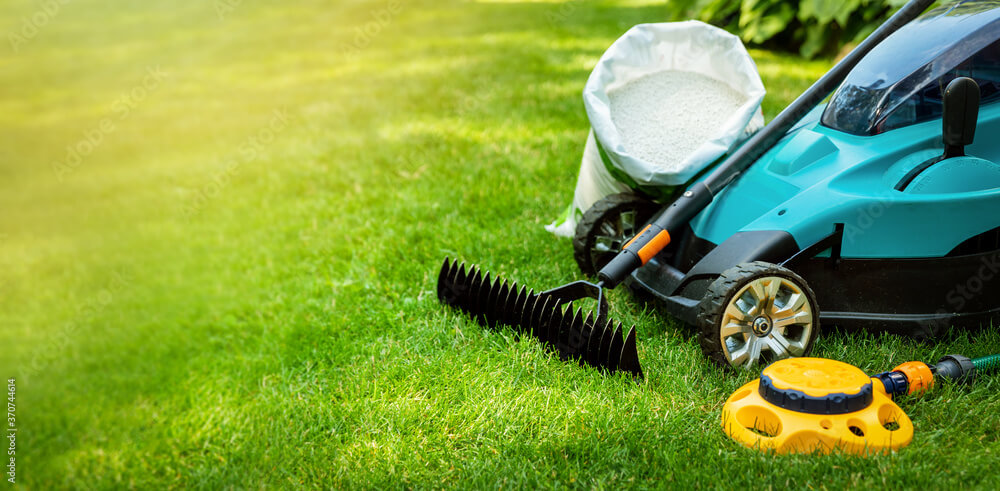
Exploring Sustainable Lawn Care: Eco-Friendly Practices for Your Yard
Maintaining a sustainable lawn is one way we can help protect the planet. Sustainable lawn care involves practices that minimize valuable resources to reduce negative environmental impacts on the environment. When approached strategically, it can reduce chemical runoff into water sources, support biodiversity by preserving native habitats, and conserve water using efficient irrigation systems and drought-resistant plants.
Let’s look at some of the best eco-friendly practices for a more sustainable yard.
Feed Your Home Lawn the Right Way
Feeding your lawn promotes strong root development, healthy growth, and a vibrant appearance. Start by choosing an appropriate fertilizer. Two applications of organic fertilizer, once in the spring and again in the fall, can help reduce your carbon footprint and provide necessary nutrients, such as potassium, phosphorous, and nitrogen. Refrain from over-applying fertilizer and choose a day when rainfall is not expected within 24 hours of application to prevent it from leaching into the groundwater.
Mow High and Keep the Blades Sharp
Mowing too low can scalp your lawn, which causes undue stress on the turf, making it more susceptible to pests and disease. Ideally, you want to follow the rule of thirds, meaning don’t cut off more than one-third of the grass blade’s length. Mow just every other week or when the grass reaches about 4 inches. Also, ensure that the lawnmower blades are kept sharp to reduce fuel consumption and achieve a clean cut.
Don’t Bag Up Your Grass Clippings
While excess grass clippings on your lawn may not always be aesthetically pleasing, they can help you maintain a sustainable lawn. Grass clippings leftover from mowing can be a natural fertilizer; if left on the ground, they will compost in place as they feed micro-organisms. Nutrients are returned to the soil, helping to build a healthier lawn that retains more water. In the fall, you can also use leaves shredded by the lawnmower to feed your grass organically.
Overseed Your Lawn at Least Once a Year
If you’ve ever dealt with a patchy lawn, you know it can be a vicious cycle of weeds and the use of chemical herbicides. Overseeing your lawn each year helps encourage healthy, dense growth that can ward off weeds without the assistance of chemicals. The best time to overseed a warm-season grass like St. Augustine sod is in the spring, and you’ll want to overseed a cool-season grass like Kentucky Bluegrass in the fall.
Take Advantage of Rainwater Sources
Water is essential for proper lawn hydration and optimal plant growth. Unlike treated water, rainwater contains beneficial nutrients and lacks certain chemicals commonly found in tap water. To keep your lawn healthy and sustainable, use rainwater whenever possible. Use micro-drip irrigation systems and other water conversation tools to help save water and keep pollutants out of the waterways. You can also direct rain from downspouts and gutters into rain barrels or directly onto the lawn.
Minimize the Use of Fungicides and Pesticides
Fungicides and pesticides harm the environment and contribute to biodiversity loss by polluting water sources and killing non-target species. They are also toxic to humans and pets and should be used as little as possible. Integrated pest management (IPM) is a practical approach to reducing lawn pests and diseases without chemicals. Some simple IPM tips include aerating the soil, dethatching the lawn, and removing plant debris like twigs, leaves, and spent annuals.
Establish Natural Barriers Near Waterways
If you live near the water, consider building natural barriers to serve as buffers between your lawn and the waterway to prevent soil erosion. This area should span about 10 feet and remain unmowed and unfertilized. In it, you can plant plants that can survive without irrigation or fertilization, such as lavender, yarrow, Russian sage, daylilies, and rosemary.
Where to Buy Sod for a Healthy, Sustainable Lawn
Maintaining a sustainable lawn starts with suitable grass. Duda Sod is Florida’s leading sod supplier of grasses, including popular varieties like icon zoysia sod, bahia sod, and floratam sod.